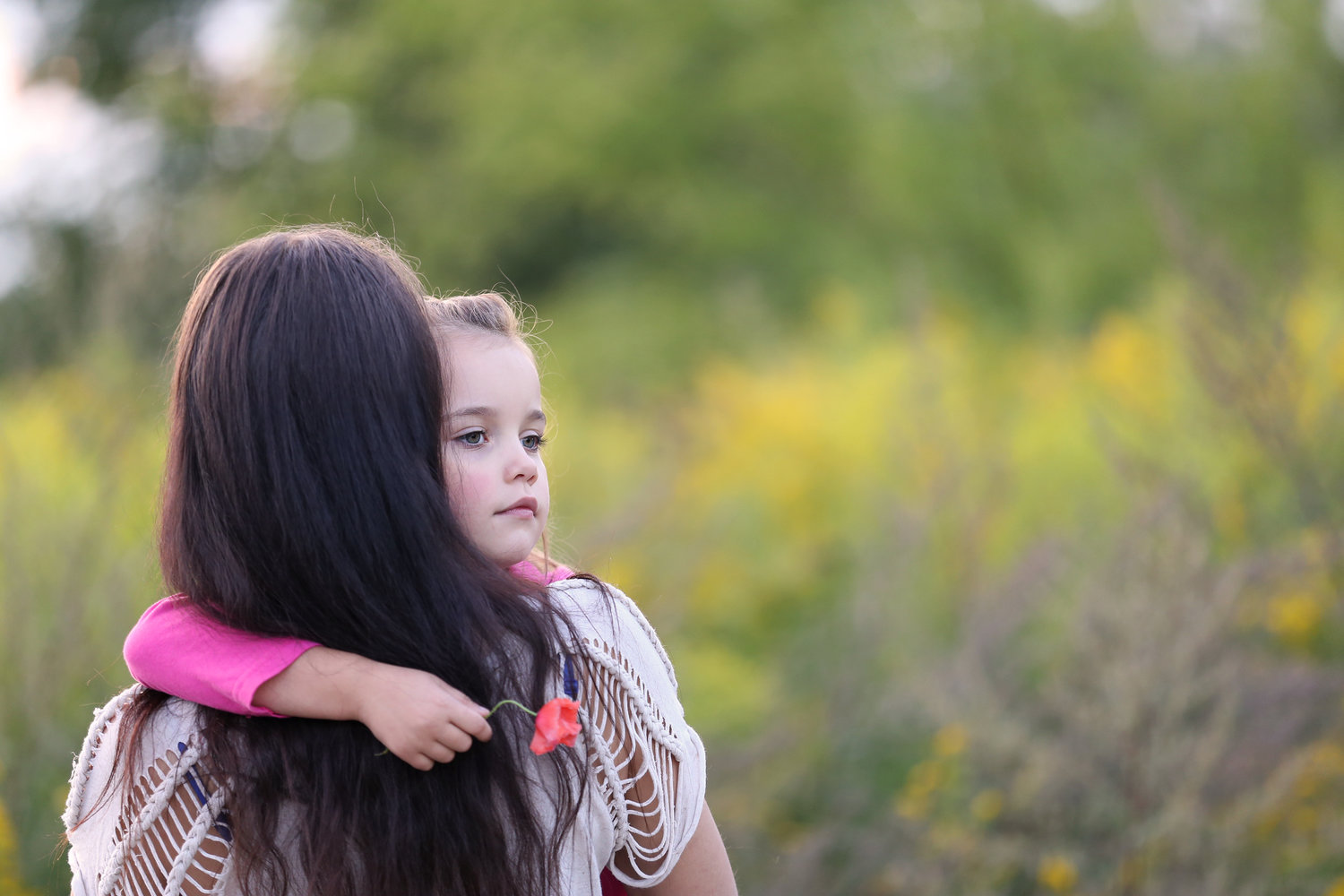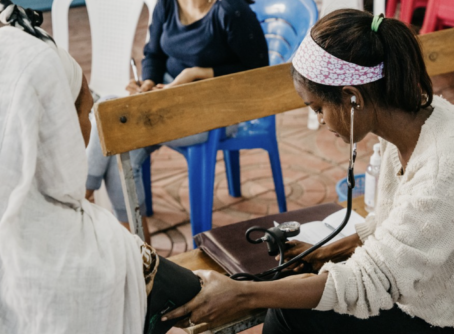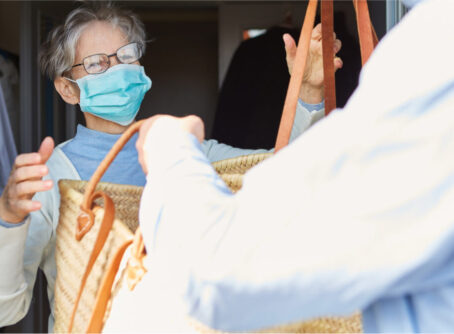
This article is part of Shared Justice’s Second Chance Month series running throughout April and May. This series will explore barriers that returning citizens face upon release from prison, highlight the ways in which government and civil society institutions can respond, and invite our readers to participate in efforts to ensure that returning citizens have the ability to flourish upon reentering society.
Much of the talk surrounding criminal justice reform is centered on the incarcerated population and returning citizens. But major social issues have major social ramifications, and the full effects of our prison crisis are far more extensive than many Americans may realize.
One population often overlooked is the family members of those who are or have been incarcerated. A new report by FWD.us reveals the depth and breadth of the wounds that mass incarceration has inflicted on families across the country.
On April 18, the prison outreach and advocacy organization Prison Fellowship hosted a webinar featuring Felicity Rose, FWD.us’ director of research and policy for criminal justice reform, as well as former Connecticut governor John Rowland, who is currently working to bring Prison Fellowship programs to the Northeast. The webinar was focused on Rose’s research about the impact of the prison crisis on American families.
For decades, lawmakers referred to incarcerated individuals’ families as a minority and an anomalous segment of the greater population, and as Rowland pointed out, they weren’t wrong to do so. After all, 40 years ago, the number of Americans in prison was relatively small. However, since the 1980s, criminal justice policies pursued by our country have caused a dramatic increase in incarceration, thereby multiplying the number of families affected by incarceration into the millions.
“1 in 2 adults have an immediate family member currently or previously incarcerated
FWD.us’ data shows that one in two adults have an immediate family member currently or previously incarcerated. The statistic increases to almost two-thirds of all Americans if extended families are included. The reach of the mass incarceration crisis is extraordinary and it affects racial minorities and the poor in a unique way. FWD.us reports that “[b]lack people are 50 percent more likely than white people to have had a family member incarcerated, and … [p]eople earning less than $25,000 per year are 61 percent more likely than people earning more than $100,000 to have had a family member incarcerated.”
The report goes on to demonstrate that the negative consequences of incarceration are not limited to those behind prison walls. On the contrary, family members experience many hardships and burdens, according to Rose. Such burdens include the financial strains of losing a primary source of income and costs associated with travel, phone calls and bail. There are associated health risks that can result from the emotional trauma and social stigma of a family members’ incarceration. For example, those with family members in prison are more likely to develop diabetes or to experience a decline in mental health. Lastly, the incarcerated individual’s absence places a strain on relationships that can result in fractured families. During the webinar, Rowland reminded viewers that the in-prison divorce rate is close to double the national average.
SUPPORTING THE FAMILY DURING AND AFTER INCARCERATION
The family is one of the most basic and fundamental institutions in our society. As such, we should strive to counteract the harmful consequences of mass incarceration on family life. But who is best equipped to address the problem: the government, civil society or the individual? Prison Fellowship’s webinar made it clear that each has a part to play.
Government can and should tackle the essential task of reforming the criminal justice system to reduce mass incarceration. Little else will make as big a difference in the lives of incarcerated citizens and American society in general. Beyond systemic reforms, though, the government can make it easier for families to communicate with their incarcerated loved ones. Rowland pointed to the incredible number of hoops that incarcerated individuals’ families have to leap through to stay in contact with them. Rose told stories of teenagers and young adults having to drive hours and hours to access their loved ones’ facilities and endure invasive and almost humiliating security procedures for just a short visit. Phone calls with a loved one in prison are extraordinarily expensive, making regular communication even more difficult. The government could do a great deal for families by removing or mitigating these obstacles to family engagement. The First Step Act’s provision for placing individuals in prison facilities close to their homes is a good start, but it applies only to federal prisons, and more comprehensive reforms are required.
Civil society—specifically churches and nonprofits—can provide additional support to families. Imprisonment-related trauma is not often spoken about in churches. But FWD.us’ research shows that a significant proportion of the average congregation is affected by it nonetheless. If one in two Americans has had an immediate family member serve a jail or prison sentence, pastors and community leaders should not be afraid to breach this taboo subject and pave the way for dialogue. Rose was adamant that beginning a conversation is one of the most powerful things that can be done for families affected by incarceration. Nonprofits like Healing Communities can and do partner with churches to provide ministerial support for families with an incarcerated loved one. Others work independently to help keep those in prison connected with their spouses and children: Prison Fellowship, for instance, helps incarcerated individuals send presents home for the holidays through their Christmas Angel Tree program. Other nonprofits can step in to fill similarly supportive roles within their local communities and across the country.
“We should strive to counteract the harmful consequences of mass incarceration on family life
Individuals, meanwhile, can do their part by proactively communicating with their incarcerated family members and reaching out to other families in similar situations, so as to shoulder one another’s burdens. Rowland implored audience members to stay in contact with those in prison. He remarked upon the power of face-to-face visits and phone calls, and he said that letters can bring even more joy. Seeing the mail come in and finding a letter from a family member, he explained, is one of the happiest experiences available to the incarcerated. Even those who have little time to spare or for whom sending mail is difficult can keep in touch with loved ones with the help of nonprofits like Flikshop, which provides families with a simple and convenient prison postcard service. Rose specifically advised that those who seek to visit loved ones that are imprisoned far from home organize carpools to cut costs. Simple acts of solidarity can be of great practical benefit.
FWD.us’ latest report reveals that the effects of mass incarceration are wider and run deeper than anyone might have imagined. The fact that half of all U.S. adults have seen an immediate family member spend time in jail or prison is startling. These statistics should shock us, but they should also motivate us to take action. As Rowland said during the webinar, “The luxury of denial no longer exists,” and the trauma that American families are enduring should be addressed sooner rather than later.
Progress is being made: the First Step Act has opened the door to a great many reforms, even if further action is still required to make them a reality. Nevertheless, much remains to be done if families and their loved ones in prison are to experience thorough healing. The negative effects of incarceration on families are numerous and, if we hope to become a healthier society, lawmakers, churches, nonprofits and individuals should all seek to do their part in strengthening families during and after incarceration.
Collin Slowey is an intern with the Center for Public Justice and a political science student at Baylor University.





